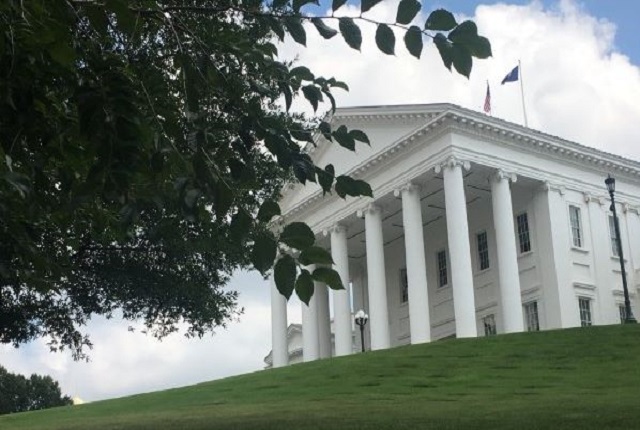House Bill 1902 mandated restrictions on single-use plastics. Several persons have asked the effects of this legislation on our industry. For instance: Does the regulation apply to plastic pesticide containers or fertilizer and seed bags?
Kyle Shreve of the Virginia Agribusiness Council provided clarification: The regulation applies only to those food vendors that use single serve, ready to eat containers
Here is the verbiage of appropriate parts of the regulation (you can read the complete document here
Expanded polystyrene food service container” means a rigid single-use container made primarily of expanded polystyrene and used in the restaurant and food service industry for serving or transporting prepared, ready-to-consume food or beverages. “Expanded polystyrene food service container” includes plates, cups, bowls, trays, and hinged containers but does not include packaging for unprepared foods or packaging, including a cooler, used in the shipment of food.
“Food vendor” means an establishment that provides prepared food for public consumption on or off its premises and includes a store, shop, sales outlet, restaurant, grocery store, supermarket, delicatessen, or catering truck or vehicle; any other person who provides prepared food; and any individual, organization, group, or state or local government entity that regularly provides food as a part of its services.
§ 10.1-1424.3. Expanded polystyrene food service containers prohibited; civil penalty.
A. Beginning July 1, 2023, no food vendor that is a restaurant or similar retail food establishment and is part of a chain with 20 or more locations offering for sale substantially the same menu items and doing business under the same name, regardless of the form of ownership of such locations, shall dispense prepared food to a customer in an expanded polystyrene food service container.
Beginning July 1, 2025, no food vendor of any type shall dispense prepared food to a customer in an expanded polystyrene food service container.
B. Any food vendor may request from the locality in which it is located an exemption from the provisions of subsection A. The locality may grant the exemption if the food vendor demonstrates to the satisfaction of the locality that compliance with subsection A would impose an undue economic hardship on the food vendor. For the purposes of this subsection, “undue economic hardship” means a situation in which (i) a food vendor has no reasonable alternative to the expanded polystyrene food service containers in use by that food vendor and (ii) compliance with subsection A would cause significant economic hardship to that food vendor. A locality may so exempt a food vendor for a period of not more than one year from the date of the exemption. A food vendor granted such an exemption may reapply to the locality before the expiration of the exemption, and the locality may grant an additional exemption from the provisions of subsection A not to exceed one year for each such reapplication if the food vendor demonstrates a continuing undue economic hardship at the time of reapplication to the satisfaction of the locality.
C. Any person who violates any provision of this section, upon such finding by an appropriate circuit court, shall be assessed a civil penalty of not more than $50 for each day of such violation. Any civil penalties assessed pursuant to this section in a civil action brought by the Attorney General in the name of the Commonwealth shall be paid into the state treasury and deposited by the State Treasurer into the Litter Control and Recycling Fund. Any civil penalty assessed pursuant to this section in a civil action brought by a locality shall be paid into the treasury of the locality, except where the violator of this section is the locality or its agent, in which case the civil penalty shall be paid into the state treasury and deposited by the State Treasurer into the Fund.
D. The Department shall post to its website information on how to comply with this section and how to file a complaint for a violation of this section.

